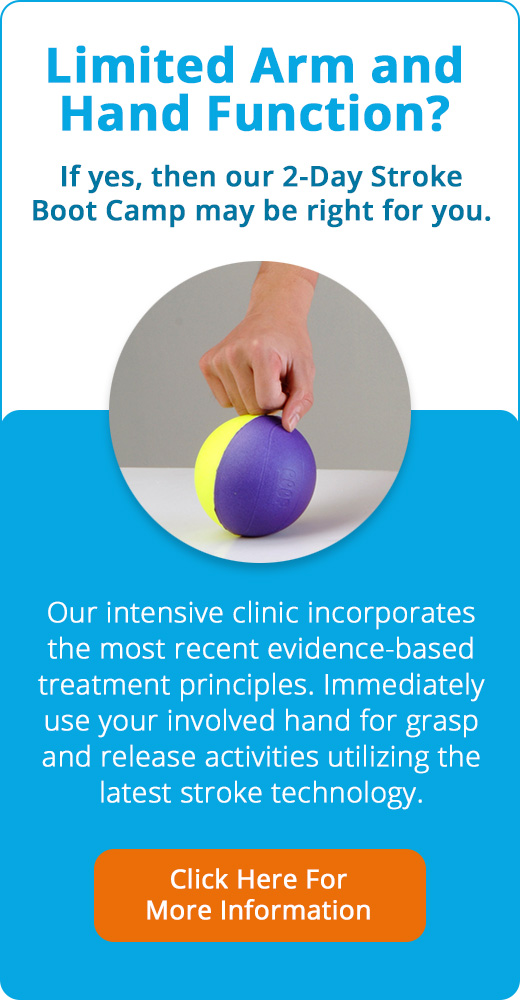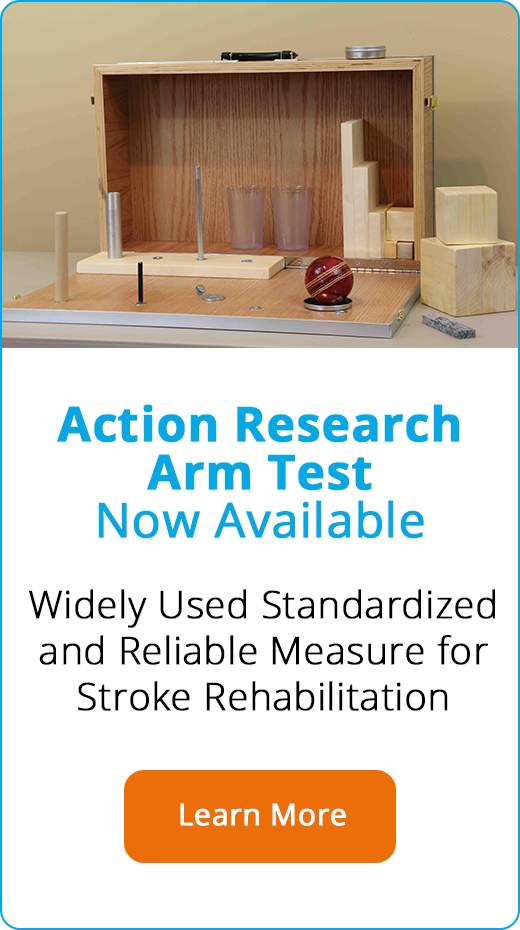Don’t Be Stuck With the Wrong Stroke Therapist. 7 Must-Ask Questions When Interviewing.
NeuroRehab Team
Tuesday, August 13th, 2019

Suffering a stroke is a life-changing event. The statistics show that many patients will struggle from long-term impairments well after discharge from the hospital. In addition, a majority of stroke survivors will require ongoing rehabilitation on an outpatient basis so continued progress can be made.
As if learning to adjust to a new life following an injury is not difficult enough, finding a good therapist can be challenging. Like every profession, some individuals are hard working, passionate and extremely knowledgeable about their respective industry, while others seem to live day-to-day in an alternate universe lacking basic skills, motivation and common sense. When your recovery is in the hands of a therapist, it is absolutely critical that you identify the best possible clinician that checks all of your boxes so maximum progress can be made.
Common factors that affect overall recovery following stroke.
- Damage the stroke has caused
- How soon treatment begins
- Motivation and compliance by the patient
- Rehabilitation technology being offered
- Family and friends encouragement and support
In addition to the above important considerations, one additional concern that affects recovery includes the skill level of the therapist.
In general, many of us perform an appropriate amount of due diligence when making big decisions such as purchasing a car, deciding on the best computer to buy, or finding a home. Why do we not provide this level of scrutiny when searching for the very best therapist (or clinic) that can literally make or break our own recovery? Nothing is more important than our health, yet far too often, we bypass the rational approach of researching and simply default to trusting our doctor or discharge planner with making this important assessment for us.
Although some physicians may be spot-on when it comes to choosing good quality outpatient clinics or therapists, many are not up-to-date with the granular details regarding the skill-level of various clinicians or what type of interventions he or she endorses. Moreover, with respect to discharge planners, they typically provide clinic recommendations based on location for convenience purposes vs. top ranking rehab centers within a certain radius. (Many would drive 30 more minutes for a game-changing rehab experience!)
Tip: If someone recommends a specific hospital for your care because it is highly ranked or has received numerous top awards, that does not necessarily mean that the rehabilitation department is also award-winning. Often times, the “Best of” rankings are using metrics that are not based on the rehabilitation department and, frankly, have very little to do with the therapists performance, or whether or not they have excellent functional outcomes following discharge.

It is understandable that a stroke survivor and his or her family is vulnerable and constantly seeking advice as they navigate the nuances of the rehab process. Avoiding long therapy delays when transitioning from inpatient rehabilitation to an outpatient program should be avoided. Having said that, sometimes you are better off spending a few extra days researching your therapy options before quickly committing to one location. It is highly recommended that you interview all of the therapists on your list before making one of the biggest decisions you will encounter. Remember, you did this for material things such as cars, computers and appliances. Listed below are some key questions to ask when interviewing your prospective therapist.
Important Interview Questions:
Note: Although the below is not a comprehensive list of questions that you should ask (personality, energy level, compassion, communication style, etc.) when choosing a therapist, it does touch on the key topics regarding neurorehabilitation treatment. Therapists play an enormous role in your recovery and you need to choose wisely. Remember, you are the customer and they are providing you with a service.
1. Do you embrace evidence-based treatment?
This is a must! If the answer is yes, be sure to ask for examples of what type of interventions he or she considers to be evidence-based. Click on this link so you can learn the latest interventions favorably seen by the research community. If the clinician says “every stroke patient is different” and they do not embrace stroke research, then you should keep looking. Wouldn’t you expect your cardiac surgeon to follow the latest scientific advances?
2. Do you subscribe to more than 1 specific treatment approach when treating stroke clients?
Get your keys and run for the door if the therapist only practices one approach. Research shows that no single approach is superior and that it will take numerous strategies and techniques to foster recovery.
3. How many stroke clients do you treat per month?
Use your judgement on this one. Do you really want your brakes fixed at an auto shop that does this a few times per month only?
4. How many years have you been practicing in the neuro field?
See #3.
5. Are you comfortable with utilizing stroke technology?
Technology is here to stay. It is not going anywhere and many devices have proven to be very effective in the rehabilitation field. If the therapist states “My hands are my special tool”, then this will be your first red flag. This clinician probably also only subscribes to 1 treatment approach as well. If this is the case, the therapist is most likely not comfortable with change and is reluctant to elevate his or her skills to match the current scientific trends.
Finally, if the clinician only uses her hands, I am assuming she will then need to move into your home so she can offer daily “special” hands on treatment since technology will not be recommended and recovery will require intensive and frequent training (more than 3 times per week). This is clearly not practical, nor realistic.
6. If so, what technology does your clinic currently have that may be beneficial?
Hopefully the therapist answered question #5 with a resounding “yes” and the clinic does utilize technology. If so, have the therapist specifically list what equipment they use to address typical impairments similar to your concerns. It is always good to know what technology the clinician has experience using and their comfort level.
7. If your patient experiences a plateau in therapy, are you willing to accept additional opinions and suggestions from others so further progress can be made?
If your therapist is not willing to accept feedback and/or promotes his or her skills as if they are superior or unmatched, be careful. This could be a problem down the road if your progress slows down and are questioning the treatment plan. Nothing is worse than a strong-willed therapist putting his or her pride in front of your recovery. A good therapist will try all possible ideas and technologies that are accessible and deemed appropriate. Unless the clinician is consistently returning complete function for his or her patients, there is no reason to hold back from additional treatment ideas and interventions. Not only is that irresponsible, but unethical.
Find Must Have Stroke Technology
Over the years, the neuro profession has taken a lot of heat due to the lack of consensus on how best to treat stroke patients. Unfortunately, “patient A” can have one outcome when seen by “therapist A” while having a completely different outcome when seen by “therapist B”. Frankly, when it comes to the neurorehab profession, it is easier to solve the Rubik’s cube blindfolded than getting 5 therapists to agree on how best to treat a stroke patient. With the onslaught of scientific studies over the last 2 decades, confidence is building regarding predicting outcomes and recommending best practices. There is still along way to go, but it is improving.
It is easier to solve the Rubik’s cube blindfolded than having 5 therapists agree on how best to treat a stroke patient.
Now, more than ever, it is critical that clients take advantage of the latest break-through stroke interventions. This will require each patient to dive deep and search for the best possible clinician in his or her area. Unfortunately, for some living in a rural setting, it may be challenging to find very good care due to lack of options. We can only hope that as more technology and research comes forth, many more clinicians will be updated and impassioned by the new evidence that exists making the recovery much more predictable and successful.

